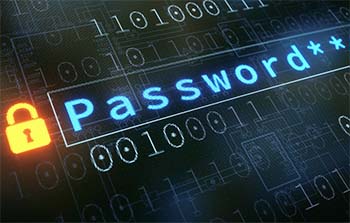What to do if you think you've been hacked
How to tell and what to do

In This Article
• More people are now working from home
• Hacking attacks are on the rise
• There are several signs you can look for
• Don't panic! Just follow these steps
• How to prevent hack attacks in the future
(No time to read right now? Just want to see the list of things to know? Here you go.)
Introduction
Many more people are now working from home and using online services from their personal computers, tablets, and phones. Hackers are taking advantage of this new opportunity.
 They're using several techniques, including spam and phishing email with messages about Covid-19 and the vaccine, because they know it they will get people's attention.
They're using several techniques, including spam and phishing email with messages about Covid-19 and the vaccine, because they know it they will get people's attention.
The hackers' goal is to install malware or ransomware on your devices and/or to collect personal information so they can steal your identity to sell on the dark web.
How to Tell If You've Been Hacked
There are some telltale signs that you've been hacked.
Look for suspicious activity in your online accounts
Check your social media accounts for posts or connections you didn't make
Run a full virus scan periodically and carefully check the results
Look for browser toolbars you did not install
Be aware of pop-ups you get outside of your web browser
See if your browser or operating system settings have been changed or reset
See if a web site you use is on the list of breached websites
Look for intruders on your WiFi network…
Windows
Click the “Start” icon in the lower left corner
Enter “view network computers and devices”
Look for unusual items
macOS
Open “Finder”
Click “Go” in the menu bar
Click “Network”
Look for unusual items
What to Do
 If you think you've been hacked, don't panic.
If you think you've been hacked, don't panic.
Take a deep breath, then disconnect your computer from the Internet, either by turning off its WiFi connection or unplugging your router.
That will prevent any active connections from hackers (that you might not notice) from doing any further damage.
Then follow these steps:
Immediately change your passwords to strong ones even for unaffected accounts
Don't use the same password on more than one site
Enable multi-factor authentication
Clear your browser cache and cookies
Alert credit bureaus, banks, credit card companies, and online merchants (like Amazon) you use regularly that your accounts there might have been compromised and ask them to reset the accounts for you
How to Prevent a Hack Attack
Obviously, it's better to prevent a hack than to recover from one. Here are some things you can do to avoid being hacked:
Periodically log into your online accounts and look for anything suspicious
Pay attention to login alerts you get via email from Google, Apple, Facebook, PayPal, Amazon, etc.
Note the date, time, and location of the login attempt. If you're sure it wasn't you, contact the company by going directly to them in your web browser (do not click a link in the email)
But be aware that the email might not be legitimate, especially if it mentions a web site or service you do not use. See this article about phishing emails.
Follow good password habits
 Make sure your passwords are not on this list
Make sure your passwords are not on this list
Use strong passwords
Never use the same password in more than one place
Use multi-factor authentication
Do not save passwords in your web browser
Never use “findable” answers when you set up security questions (like mother's maiden name or high school mascot)
Close zombie accounts (sites / services that you no longer use)
Don't overshare information on social media or other online sites that a hacker could use to break into your accounts
Summary
Many people get hacked and don't even know it. Hackers are taking advantage of people working from home. They're using phishing and other techniques to harvest personal information and install malware.
We've explained ways you can detect if you've been hacked and what to do about it. Perhaps more importantly, we've shown you steps to take that help you avoid getting hacked in the first place.
Questions?
If you have any questions about anything here or if there's an issue you'd like us to write about please let us know.
Want More Info Like This?
Get our Free Newsletter
